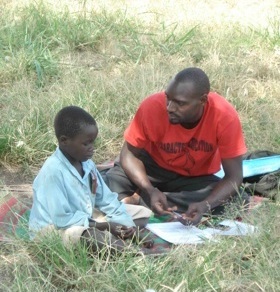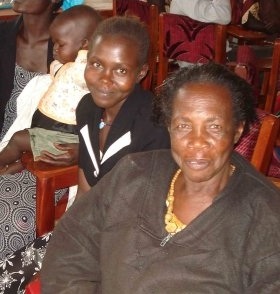Beyond the grievous consequences of war for the individual, exposure to violence on a societal level profoundly disrupts the family system. Loss of family members, psychological suffering of individual family members, high rates of alcohol abuse and the detachment from traditional social support systems such as the extended family adversely affect family relationships. As a consequence families that
have been living through war are at a high risk for family violence even after the war has ended. Children growing up with violence in the family continue to suffer and are vulnerable to develop long-lasting emotional and behavioural problems.
In an effort to better understand how twenty years of civil war
affected Northern Ugandan families, vivo counsellors spoke to more than 500 second grade children and their families. In 2010, vivo counsellors travelled to remote villages in Gulu and Nwoya districts to gain deeper insight on the mental well-being of guardians and children, as well as to assess family functioning as a whole.
vivo found that partner violence and child maltreatment constitute major problems in a large proportion of families. In a first attempt to break the silence, at-risk-families for family violence were followed up by vivo counsellors and received a brief psychosocial intervention that focused on trauma, alcohol abuse, positive parenting techniques, and self-regulation skills. vivo worked together with local stakeholders in the communities, such as child protection volunteers, local councils, elders, and local human rights groups in order to establish continuous support for affected families. vivo raised awareness about trauma related issues and family violence by organizing workshops within affected communities, thus promoting community level awareness. In the next step vivo aims to develop appropriate psychological and systemic level interventions to break the cycle of violence and alleviate the suffering of affected families.



